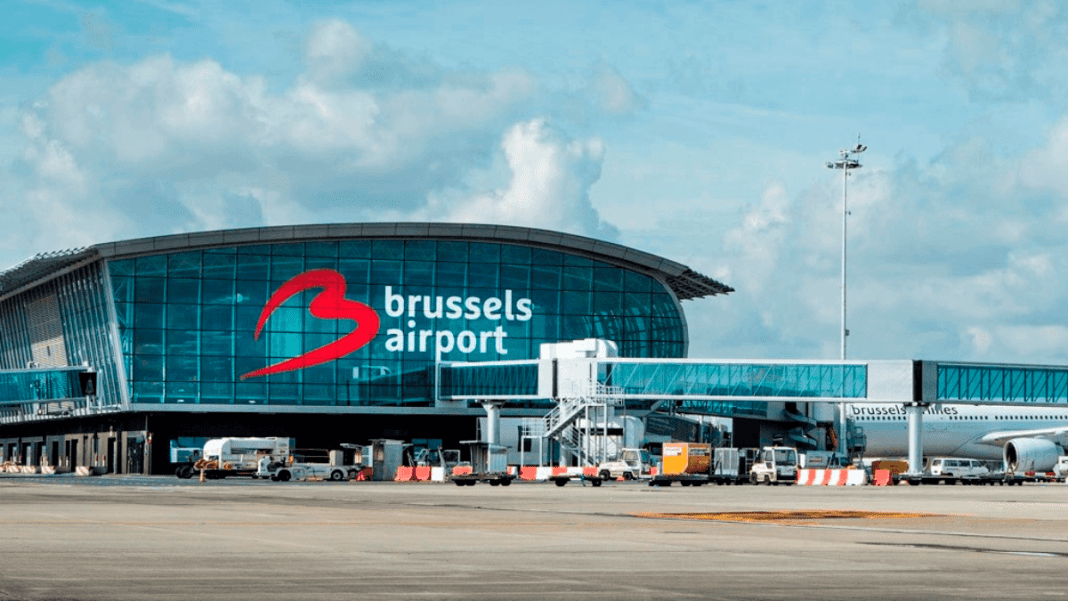Major Disruptions Hit European Airports
Brussels Airport is facing massive disruptions after a cyberattack affected its check-in systems. The airport asked airlines to cancel nearly 140 departing flights scheduled for Monday. This comes after cancellations of 25 flights on Saturday and 50 flights on Sunday.
The problems started late Friday when airports in Berlin, Brussels, and London reported issues with electronic check-in systems. Airlines and airport staff had to rely on backup solutions, such as manually handwriting boarding passes or using spare laptops. Despite the chaos, many other European airports were not affected.
The cyberattack targeted software provided by Collins Aerospace. Passengers use this system to check in, print boarding passes, print bag tags, and manage luggage dispatch. The U.S.-based company confirmed on Saturday that there was a “cyber-related disruption” affecting select airports in Europe.
It is not yet clear who is behind the attack. Experts suggest it could involve hackers, criminal organizations, or even state-sponsored actors. The cyberattack affected the check-in systems, but aviation authorities kept safety and air traffic control secure. The European Commission confirmed that there were no signs of a severe or widespread attack.
Impact on Flights and Airport Operations
Brussels Airport is the hardest hit among affected airports. On Sunday, officials said they had to cancel half of the 276 scheduled departing flights for Monday. The main reason is that Collins Aerospace has not yet delivered a secure version of the check-in system.
Airports in London and Berlin have started showing signs of improvement. Heathrow and Berlin Brandenburg Airport reported smoother flight operations, though waiting times remained longer than usual. Airports advised passengers to use online check-in, self-service kiosks, or fast bag drop options to avoid delays.
British teen faces U.S. charges for $115 million cybercrime spree targeting companies and courts
At Brussels, the airport managed to maintain about 85 percent of scheduled departures over the weekend. Extra staff deployed and the continued operation of some services, like self bag drop and online check-in, made this possible. However, manual check-in processes remained necessary for many travelers.
Airport spokespersons explained that only check-in desk computers were affected. Self-service kiosks continued to function. Teams have been using backup laptops and alternative systems to reduce the impact on passengers.
Passengers were strongly advised to check the status of their flights before heading to the airport. Airlines and airport authorities emphasized using all available options to manage the check-in process.
Response from Companies and Airports
Collins Aerospace, owned by RTX Corp., acknowledged the issue and said it was working to resolve it. The company emphasized that the disruption was limited to electronic check-in and baggage drop systems. Manual check-in operations could help reduce the impact.
Heathrow Airport confirmed that despite delays, the majority of flights continued to operate. Officials urged passengers to rely on online check-in and self-service options whenever possible.
Shocking Cyberattack Paralyzes Aeroflot Flights Causing Travel Chaos at Russian Airports
Brandenburg Airport warned passengers that the systems outage would cause longer waiting times and advised them to use self-service check-in and fast bag drop services to minimize delays.
Airports across Europe continue to manage the fallout from the attack. While Brussels remains heavily affected, staff and airlines are working together to keep as many flights running as possible. Passengers are encouraged to remain patient and use all available check-in options.
